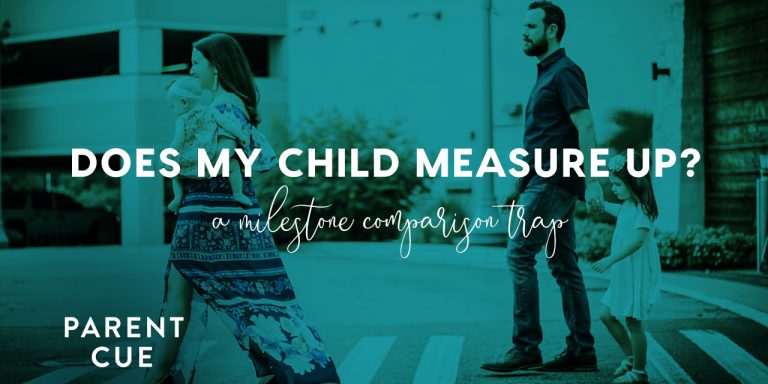
Google “developmental milestones” and you may be surprised to see 1.5 million results. Are there that many milestones in the 18-year lifespan of a child from birth until they graduate from high school? No, definitely not. 1.5 million results tells us that common milestones happen at different times, on a different “schedule” for every single child.
No need to panic if your baby does not automatically become a walking toddler by that first birthday celebration. Your three-year-old who refuses to potty-train will jump that hurdle before she leaves home for college. And, your five-year-old who still can’t master zippers and buttons will achieve those skills before his first date.
Is it ever okay to compare your four-year-old to your best friend’s child of the same age or to your older child who said so many more words at the same age? What’s the harm?
Potentially, the harm can be that your child will sense that he or she doesn’t live up to your expectations. She may eventually quit trying to be the person that she thinks you want her to be, and can’t be, or experience stress and shame because she feels inadequate.
Comparing siblings may foster or increase sibling rivalry.
Worse yet, you may feel inadequate as a parent because you see your child as “not as good as” another child and you falsely interpret that as a negative commentary on your parenting abilities.
But comparing for the sake of understanding differences and strengths can bring insights. You may be alerted to real struggles or developmental delays that are best addressed by professionals during the preschool years. When you use a positive form of comparison, you are simply identifying your child’s strengths or their needs.
Your child’s unique strengths, personality characteristics, and temperament will start to shine through starting in the first few months of life. As your baby grows and develops in these early years, instead of falling into the milestone comparison trap, you can give your child exactly what he needs most in this phase: You can embrace him and demonstrate he is worth loving and exactly how he was created to be.
And then you can finally give yourself a break and know you’re an amazing parent who loves their child well.
Source: The Parent Cue





